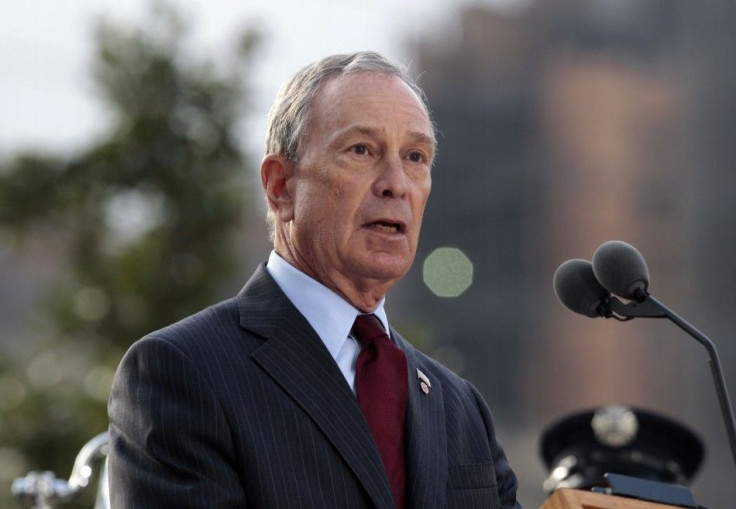Mayor Mike Bloomberg Details Deficit Plan During Speech Chastizing Washington

New York City Mayor Mike Bloomberg, in a speech railing against members of both parties in Washington, called for balancing the federal budget over a decade through spending cuts, entitlement reform, and higher tax rates and closing loopholes.
Bloomberg, an independent who had considered running as a centrist third-party presidential candidate, detailed his deficit reduction plan at an event co-sponsored by liberal think tank Center for American Progress and a center-right policy group called American Action Forum.
Bloomberg: Political Courage in Short Supply in Washington
Political courage to pass real deficit reduction, said Bloomberg, was lacking among Democrats and Republicans on both ends of Pennsylvania Avenue. Bloomberg said that failure to tackle the deficit would increase uncertainty in the business community, preventing corporations from spending and investing to create new jobs, though this reason for slow employment growth has been contested.
Decision makers abhor a lack of clarity, said Bloomberg. If you don't know what's on the other side of the ledge you don't jump off it. You sit and wait and that's what business is doing.
The mayor, who made his name and billion-dollar fortune creating his eponymous media empire, Bloomberg LLP parent of Bloomberg News, said that businesses would be willing to invest if there was clarity in future tax and spending policies, pointing to the deal during the Clinton administration that balanced the federal budget.
That sense of greater certainty and the future of the country and stability of the markets was then, and is now, worth its weight in gold, he said.
For a real deficit reduction plan, Bloomberg warned that the U.S. economy would be hurt if the Congressional supercommittee working toward a plan to save $1.2 trillion failed to reach a comprehensive deal to balance the budget.
We don't need to slaughter the sacred cows but we need a little milk from them, said Bloomberg, who was once a Democrat who became a Republican to run for mayor in 2001.
He proposed that the spending cuts and Social Security reforms pushed by a bipartisan debt reduction committee known as Bowles-Simpson --led by a top Clinton administration official and a former Republican senator--should be included in the supercommittee's plan.
Would Let Total Bush 2001 Tax Cut Expire
On taxes, Bloomberg suggested that all of the Bush tax cuts -- not just those for the wealthy -- expire next year and that President Barack Obama should ensure that with a promise to veto any attempt to extend them. Though he supported an extension of the Bush tax cuts before, Bloomberg said that it was necessary as a short-term measure.
Under Bloomberg's plan, carried interest, that is, a share of profit paid to private equity and hedge fund managers, would be taxed like regular income, which has a higher tax rate.
His support of increasing taxes on the wealthy only went as far as federal taxes, opposing effort to maintain a millionaire's tax in New York, fearing that the wealthy will move elsewhere.
He also had advice for both parties. He chastised Democrats for pitting Americans against each other in class warfare for political gain and told Republicans to stop looking at every tax break and loopholes as sacrosanct.
Regarding President Barack Obama, Bloomberg did praise his efforts for providing Congress with a broad deficit reduction plan but said that he failed to push hard enough on the issue.
That's not how any CEO would run a business, said Bloomberg.
See Also: 15% Carried Interest -- The Biggest Millionaire Tax Loop Hole?
© Copyright IBTimes 2025. All rights reserved.





















